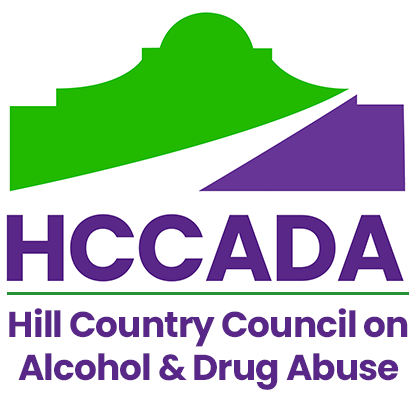Our Story
Since 1991, the Hill Country Council on Alcohol and Drug Abuse, Inc. (HCCADA), a Non-Profit 501 c3 organization, has provided prevention, intervention, and treatment services in response to youth, adults, and hurting families across Central Texas who are struggling with addiction/alcoholism and not knowing what to do or where to turn. HCCADA prides itself on having pioneered these services in the Hill Country. We are here to provide Prevention, Intervention, Out-patient Treatment, and Recovery Support Services.
Our Mission Statement
Empowering our community to live healthy lives; by providing prevention, intervention, and recovery support services for children and adults.
HCCADA’s Philosophy
The Hill Country Council on Alcohol and Drug Abuse (HCCADA) services are based on medical research that alcoholism and addiction to other drugs are progressive diseases. Research and evaluation studies indicate that long periods of sobriety, abstinence, and/or reduced drug use result from effective intervention and treatment. Like other diseases this disease is preventable, and we are committed to providing prevention services in the Hill Country community.
- HCCADA believes and follows the 10 Guiding Principles of Recovery (*Many Pathways, *Hope, *Peer Lead, *Culture, *Strength, *Person Centered, *Holistic, *Relational, *Address Trauma, *Respect).
**Created by the Substance Abuse Mental Health Administration (SAMHSA) is the agency within the U.S. department of Health and Human Services at the federal level. - In Supportive Out-Patient Treatment, HCCADA utilizes Cognitive Behavioral Therapy approaches (CBT) a type of psychotherapy that focuses on the connection between thoughts and actions. HCCADA also utilizes Motivational Interviewing (MI) which is a client-centered counseling style and set of techniques employed by our counselors and peer coaches to influence behavior and foster intrinsic motivation.
- Prevention is effective and must be in all services to address the “upstream” issues that lead to substance use and dependency. We use evidence-based practices to offer prevention across the lifespan and to the entire community.
- All services are provided utilizing a “trauma informed” and trauma responsive approach by our staff, volunteers and our Board.

